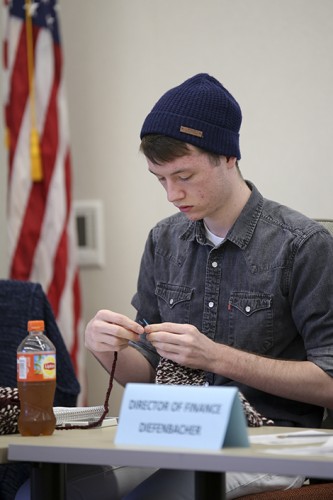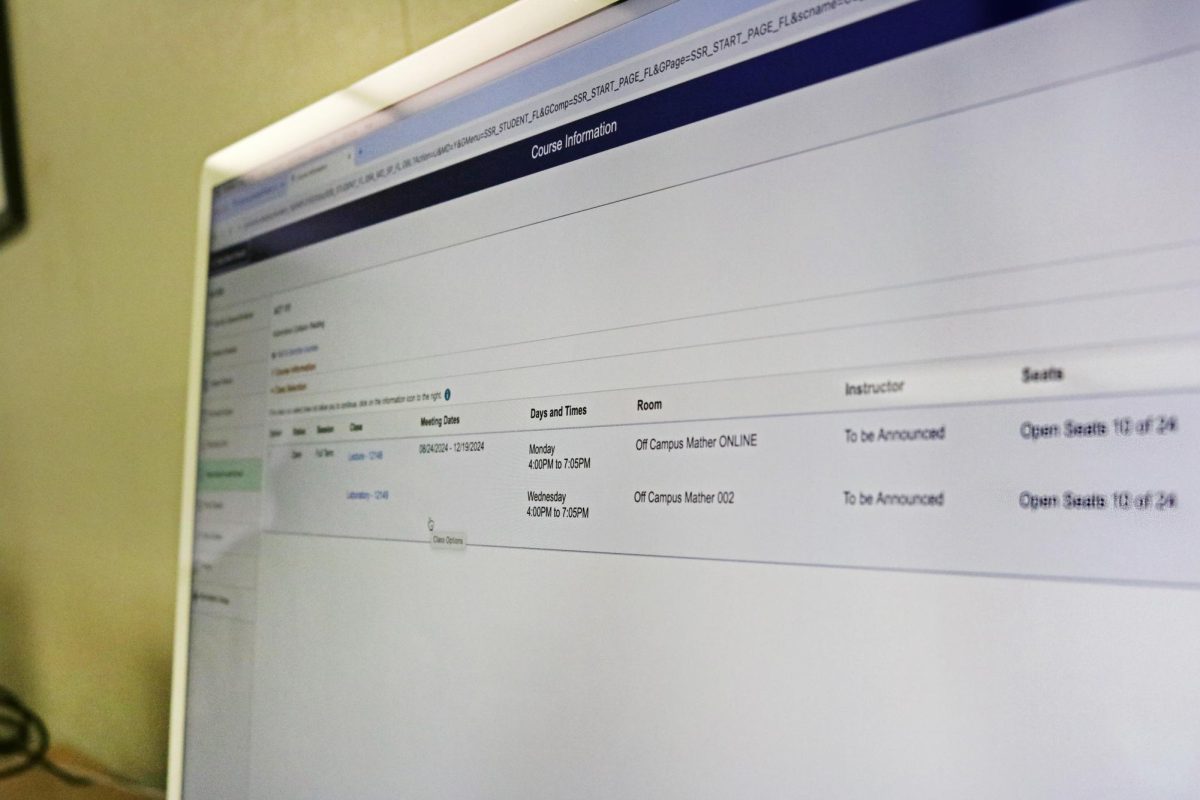American River College’s most recent memories of student government are nothing but misrepresentation, disappointment and failure.
However, the Associated Student Body is on the cusp of a new generation of student leadership and has the opportunity to restructure itself into something more innovative and effective.
ARC’s ASB does not carry with it a prestigious reputation—however, this hardly matters since it is vastly disconnected from the students it is supposed to represent.
With only 176 out of ARC’s 30,000 students turning out to vote in the most recent ASB elections, there isn’t much of a “student voice” in Student Senate.
Students are largely apathetic toward student government, and this isn’t entirely the ASB’s fault. Community college is, by design, a commuter system.
Since—up until this point—ARC’s student leaders have had a difficult time reaching and inspiring those whom they represent, we on the Current editorial have laid out a five-step plan to help out the newly elected officers.
1. Find better ways to spend money
The ASB has continually shown an inability to use its funds in a way that actually benefits students.
During the most recent ASB elections, Student Senate allocated $15,000 for the “Rock the Vote” campaign.
At first, it doesn’t sound like a terrible idea to spend the money to promote the election and engage students, but when all the candidates are running unopposed, the money doesn’t add up.
With the unofficial total of only 176 voters, ARC’s student leadership spent an average of $85 per voter.
When spending seems irresponsible, like the $13,000 spent on brand new Surface Pro 4s for the ASB, be the one to raise a flag. Only one senator voted against the bill due to lack of knowledge of the product.
When the Learning Resource Center already has computers used almost exclusively by the ASB, one has to wonder why there was only one dissenting voice.
This is the kind of irresponsible spending that needs to stop with the next group of student leaders.
When Director of Finance Jeremy Diefenbacher said “it’s not our fault they didn’t vote,” he’s wrong. It is the responsibility of the ASB to inspire the student body to take part in student government. It is also their responsibility to spend money in an effective manner.
The ASB should make sure the money they spend actually benefits the campus. Something like filtered water stations for refillable containers is a positive achievement. When the ASB is out making connections with the campus, they’re bound to find more opportunities like this to do good for the entire campus.
2. Make a campus connection
If the ASB were to do its job, there wouldn’t be a problem of the same students feeling like they have to run for office. With a strong campus connection and a sense of accomplishment in ASB, there could be droves of students looking to join student government.
Those serving on the boards of the ASB need to bring their activities to the classroom in the forms of fliers, speeches and anything else to get their fellow students involved. In-person engagements are much more effective than a passive Facebook post and signs advertising “come meet your ASB!”
After all, why should students be interested in the ASB if their elected officials aren’t interested in talking about it themselves?
Time and time again, Senate President David Hylton has expressed a desire to reach more students but fails to advertise the appropriate things.
In recent weeks, the Senate has begun discussion on resolutions that will be presented at General Assembly later this week. These are resolutions that have a real chance of being seen by state legislators.
If average ARC students were polled, it’s doubtful even a fifth of them would know this was happening. Why not spend $15,000 promoting this?
3. Challenge the institution
This next board should be the generation of the ASB that is described as innovative. But when the same members make up the ASB year after year with older members insisting things be done the way they always have, there is little room for growth.
The ASB is not a well oiled machine at this point, so the last thing it needs is to be stuck in its same old ways.
The incoming ASB members should not be complacent with the institution they are stepping into. If administration says they can’t do something, they should ask them why. If the methods of student government seem ineffective, be the ones to call it out.
As March in March and Advocacy in April have both failed, the ASB should find new ways to represent students. They should branch out and do the groundwork at the capitol themselves, and figure out what issues affect students. They should sit on as many standing committees as possible, and influence the decision making processes at ARC.
ASB members are elected or appointed to have a voice and to ask questions ‒ not to roll over and play dead.
4. Start here, go anywhere
Members of the ASB should draw from the real world of politics, where there are term limits.

When a political official has a term limit, there’s a limited amount of time to get work done. It also prevents those in political office from having too much power or influence on the institution.
When student senators spend multiple years on the ASB, they’re bound to get burnt out or jaded. A bill or resolution can always be postponed if you’re a comfortable student senator.
There needs to be a sense of urgency and a desire for efficiency held by those in office, and that discipline can only hold for so long. ASB members should consider the time they have on the board limited.
Those holding a little too much seniority in the ASB need to move on. Out with the old and in with the new.
5. Strive for a culture of excellence
Incoming ASB members should learn parliamentary procedure ahead of time and know the inner workings of their organizations as best and as soon as they can. If you run for office, you should do the level of work that comes with the job.
There should be an expectation from the ARC community that those serving on the ASB take their positions seriously. Professionalism not only helps to conduct business more efficiently, but also communicates to students and administration that the ASB is a legitimate platform for student representation.
That means no more knitting during meetings. No more inappropriate jokes during meetings. No more apologetic defenses of those who aren’t living up to their elected offices.
The incoming ASB leadership has plenty of work cut out for itself and only time will tell if it can leave the mistakes in the past and do better.





















Brad C. • May 4, 2016 at 2:24 pm
While this article is well-intentioned, I don’t think the incoming ASB can be held completely responsible for the current apathy and antipathy of student government. There are several institutional factors at play that are frankly, beyond the control of the board.
1. Students don’t really have many compelling reasons to participate. We see these ASB boards, ads, and events, but our opportunity cost for participation is low, unless we are looking to jump-start a political career. The only participation exception is when something useful needs to be on the ballot or the student population needs to react.
2. Students lack the time to participate, as college life and culture becomes increasingly optimised towards capitalist goals. Who has time to go to ASB meetings with a busy schedule? Can I participate remotely? Can I look at transcripts? Why not?
4. The newspaper is regularly intent on trashing candidates for things like petty drama, bureaucracy nitpicks, and cannabis use, while ignoring larger story opportunities. The last paper literally used language from the early days of prohibition: “reefer,” “booze.” Enough, already.
The ASB does need to be more useful, but these constraints limit what can be done to that which people already agree on.